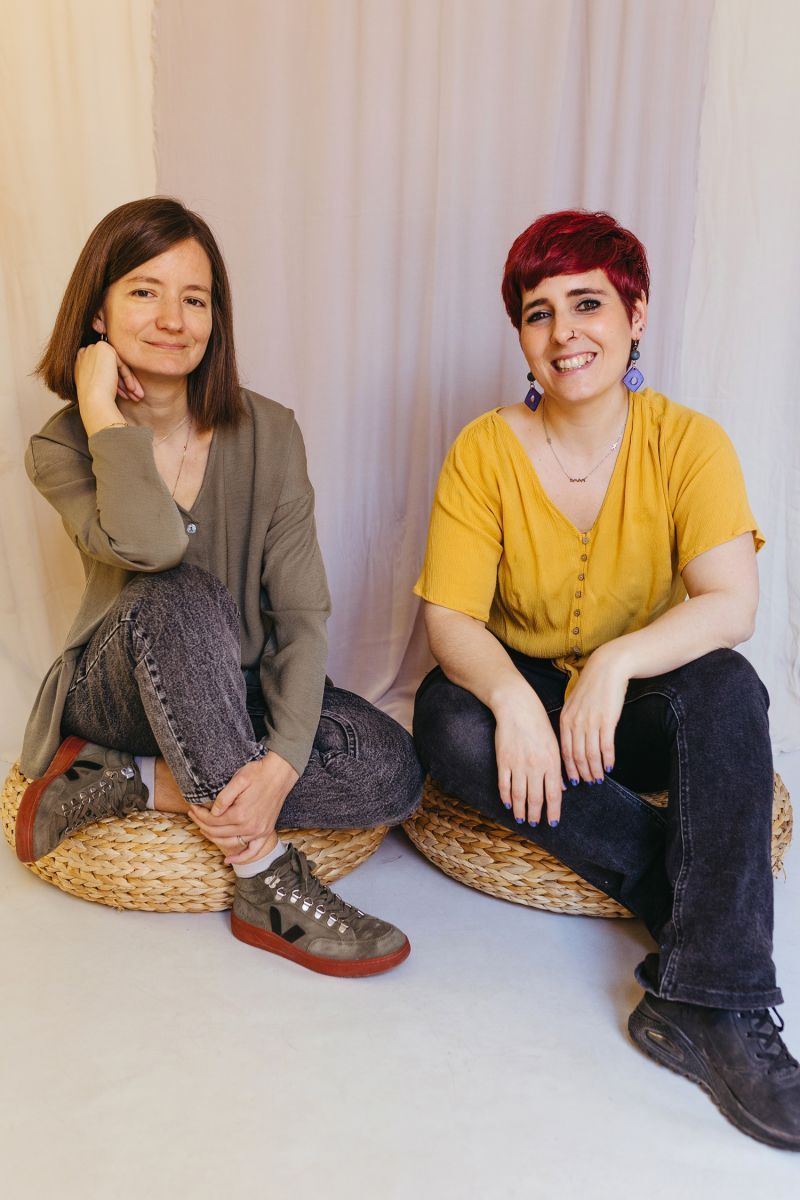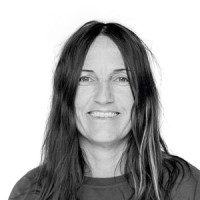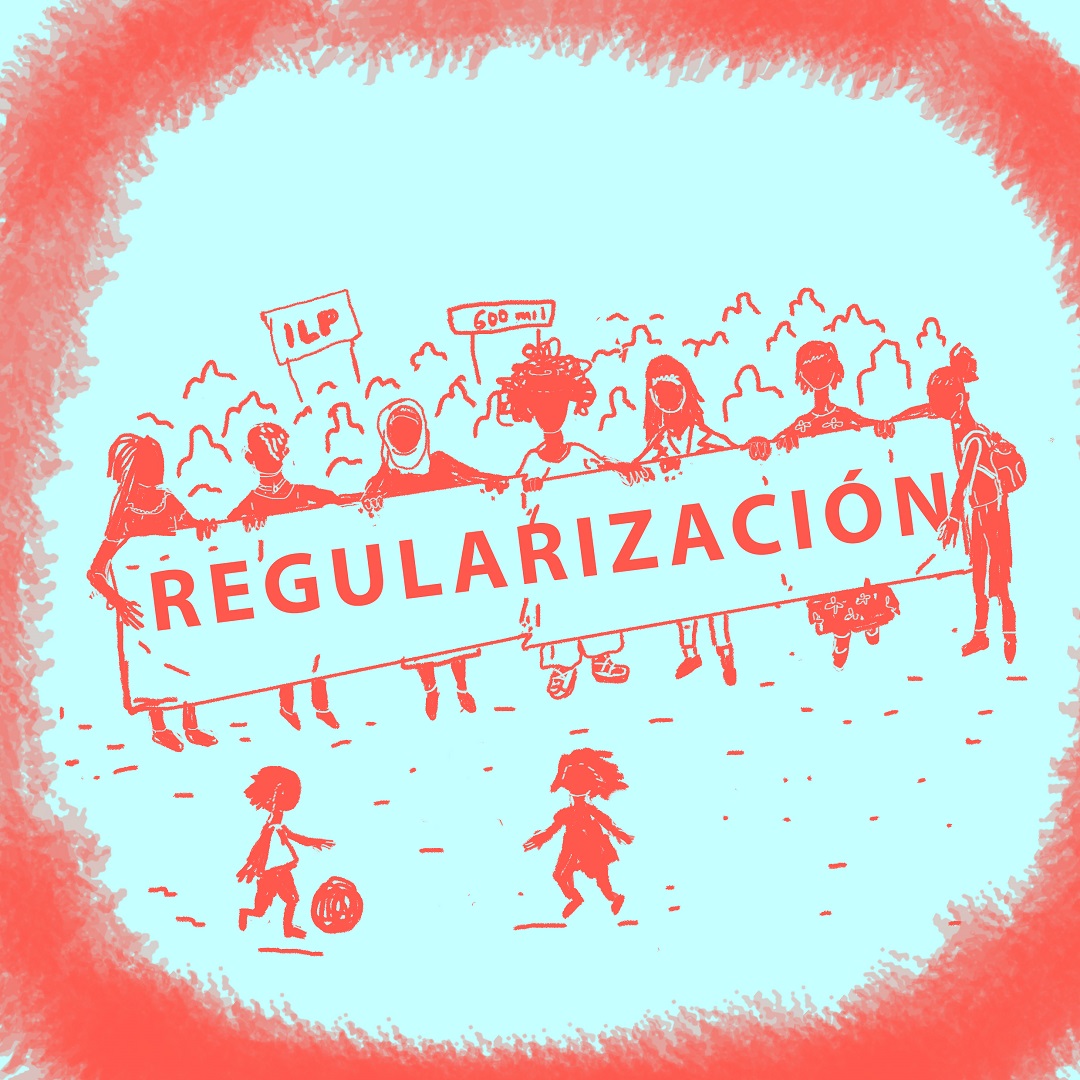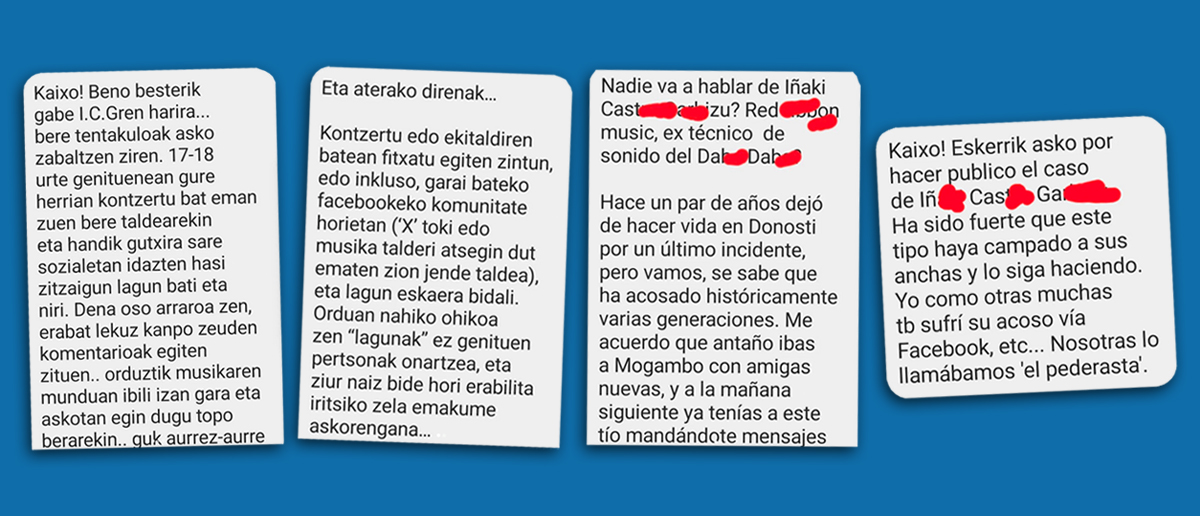"The discourse that highlights the benefits of breastfeeding can generate frustration"
- The book All lactancias (Txalaparta) shows a wide variety of lactation models. Institutions recommend breastfeeding, but do not provide the necessary means to guarantee this right. Therefore, both those who want to breastfeed and those who decide to donate a bottle demand more information and protection. We have spoken to author Saioa Baleztena and to testifying witness Nel Santaar.

Mireia Serra did not receive the necessary professional health care when she had difficulty breastfeeding her older child. He was on the doorstep of postpartum depression, not because of frustration in the use of the bottle, but because of the loneliness he felt in this process. It turned its frustration into a collective public denunciation through social media: He launched the hashtag #Totesleslactanciesmolen (all lactation is wonderful) and found that many users were identified with él.Como as a consequence of
this viral reaction, decided to visualize various experiences about breastfeeding. In the hybrid work Totes les lactancies molan, which combines the testimonies with the speeches and recommendations of the experts, Saioa Baleztena was interviewed in collaboration with the Basque journalist. Today, Serra is a lactation consultant and Baleztena has been trained to help in obstetric violence.
Txalaparta has published a book in Catalan (Ara Llibres) translated into Spanish. Baleztena regretted having received a single testimony in its original version, in the chapter dedicated to the breastfeeding of trans people. So he searched for a second for the Txalaparta edition: Nel Santatt, the pregnant father who gave the bottle to his son. Baleztenak presented the book with Santaar at the feminist cultural center La Sinsorga in Bilbao.
Nel Santastre, trans father: "I think it is very appropriate to publish a guide with information on all breastfeeding models from a perspective that tries to reduce guilt and self-demand"
Do you tell us your breastfeeding experiences?
Saioa Baleztena: I suffered obstetric violence at birth. In these cases, it is common that breastfeeding also starts with difficulties, but for me it was a place of grip to recover from that violence. Therefore, although I do not intend to idealise breast-feeding, I very much welcome my experience.
Nel Santastre: I don't remember when I decided to give my son a bottle, but it was pretty early. I insisted on my decision being respected, knowing that I was going to be under pressure, both in my environment and in the healthcare system.
Nel, what did you think about focus and participation in the book?
N. Santatt: We have a very polarized view of growth models. On the one hand, a complete parenting package with attachment: sharing bed with the child, breastfeeding and transportation of the child. At the other end, the bottle, let the little boy cry... You seem to have to choose one of these two tribes, but to tell you the truth, we all develop our own model. Furthermore, I would say that all the responsibility lies with the mother, the pregnant woman or the main caretaker, without a communist vision of growth. That is why I think it is very appropriate to publish a guide with information on all breastfeeding models from a perspective that tries to reduce guilt and self-demand. All lactation is wonderful when you can live with desire, pleasure and accompaniment.
I especially appreciate sharing a chapter with another trans father in a book that isn't about queer lives. We are not very showy and health professionals are not trained, you feel almost lucky if you do not find a transphobic attitude!

You got pregnant before you started hormonal therapy. Do bright trans boys also suffer the pressure of breast-feeding?
S. Ballesta: This is the question I asked Poli [the other interviewee, the one who breastfed] and answered that society doesn't expect a trans man to breastfeed him.
N. Santatt: I have to admit that gender stereotypes affected me, because breastfeeding seemed incongruous to the image I wanted to project. We need diverse parental referents, also for women, because many do not identify with that sacralized female image of the madre.Se cite concepts that
are unknown to many readers and that will help them define and understand what they live. For example, “lactation impairment”.
S. Ballesta: We have received many comments from readers about agitation. It's a deep sense of rejection that can happen at different times, but it's common when you're pregnant and you breastfeed your older child by hormonal cocktail. Many people are ashamed to tell, and yet it's very common. If you know what happens to you, you can access resources and manage
them mejor.En the book criticizes that the institutional discourse to promote breastfeeding clashes with insufficient paternity licenses.
S. Ballesta: One of the major problems is that we have to hear time and again that the WHO (World Health Organization) recommends exclusive breastfeeding for the first six months and continue for two years, or as long as the mother and child so desire. However, a coherent public policy to incorporate these recommendations is not being developed. So returning to work before four months means that you take the milk load to ensure the type of lactation that is best considered. On the other hand, most of the interviewees who gave the bottle felt the pressure to breastfeed in the hospital. Therefore, although the authors of the book are aware of the benefits of breastfeeding, we do not think it is fair to put ourselves in them because it can provoke anger, frustration and guilt. Beyond the nutritional point of view, the most beneficial option is the one that each family sees best in its context.
Nel, you chose formula milk as the first choice. What do you think of the WHO discourse?
N. Santatt: The recommendations presented as scientific evidence have varied throughout history depending on certain interests. Potential nutritional benefits are affected if breastfeeding is not educated because babies perceive anxiety and stress. I think that the milk of formulas mimics quite well the breast milk composition, I do not think that the difference is true with the guilt that this message causes. Less bad than my son has no tendency to get sick, because if not, it would have occurred to me that it was not because I had not breastfed, that I had been selfish. In my case, the election was free. Let us therefore consider the discomfort that this speech can cause to those who have wanted and have not been able to breastfeed. In my opinion, breastfeeding discourses are a strategy to extend parental leave, but I find it conflicting, because it conveys the following message: you have not given your child the best, you have not sacrificed enough.
Saioa Baleztena, author of the book: "I find it doubtful to breastfeed as an excuse to justify the scarce involvement of male swans"
This discourse, in addition, does not take into account its own autobiographical reasons, such as the conflictive relationship with breasts (in the case of trans boys like Nel) or experiences of sexual abuse.
S. Ballesta: In the book, there are a couple of mothers who didn't want to breastfeed, they didn't know why. They felt the pressure of the effort, and in doing so, they remembered their previous experiences of violence. It should be taken into account that breastfeeding is a sexual action.
Nel, another reason he chose the bottle was that he guaranteed co-responsibility, as his son's other father was a blind man. Has it worked?
N. Santatt: I didn't want to feel the pressure of being the primary caregiver. I would say that the bottle helped it not be that way, but then other things happened, and in growth I did notice those roles. We finally split up. I also really liked my grandmother and my friends getting involved in breastfeeding thanks to the bottle.
S. Ballesta: Other interviewees have also stressed that growth has been collectivized through the bottle. In any case, I find it dubious to use the phrase as an excuse to justify the low involvement of blind men. Attachment can be built in many ways; my partner is a gray man, I continue to breastfeed my young son, and he stays quiet with my father when I have to travel.

In the book you pay homage to parents who have left their skin in their attempt to breastfeed, but you also notice the influence that this effort can have on mental health…
S. Ballesta: I too often ask myself: Do I do it because I want it, or because I want to follow the ideal of the perfect mother? In the interviewees' testimonies, a scene has been repeated: at four o'clock in the morning, trying to get the milk out, crying, because you can't do more. More than a sacrifice, pleasure is the end! In addition, sometimes we demonize the bottle without considering the context, and it can be a stage in which one of the interviewees, Mabel, had to start with mixed breastfeeding and then gave two and a half years of breast. We have also received two relational experiences, but this model requires help and the health system does not offer it.
How can we release formula from the claws of the multinationals?
S. Ballesta: If there is any way of breaking the monopoly of big brands, I do not know. It does not seem that the institutions can intervene. Advertising of formula milk has been banned in Spain, but brands have compensated for this drawback with a strategy: selling follow-on milk. Many people do not know that from one year onwards it is better for children to take animal or vegetable milk, as the follow-up is an ultra-processed, sugary product and much more caro.En the chapter on
end of lactation, also explains the process of elimination of the bottle. Is there a lack of information on this issue?
N. Santatt: Totally. It seems that those of us who decided to give him the bottle have no concern or need. Artificial feeding is not expected to depend on or be prolonged on demand, since, beyond the nutritional function, absorption provides comfort and facilitates sleep.
S. Ballesta: The bottle is considered to be a simple model that does not require help, and that is not the case. For example, there are better and worse teats depending on the shape, and that information is not very available. According to Mireia, when she had to give her eldest son the milk formula, she asked the midwives about the brands and they only said: “Go to the pharmacy and ask for the most expensive milk.” They are not trained.
The book contains a chapter on perinatal lactation. It's a very unknown option, also in the health system, isn't it?
S. Ballesta: In Catalonia, a doula called Noelia Sánchez is preparing the professionals. It is a very painful moment to have to give birth to a child who is not alive or who is going to die. The system offers only one pharmacological pathway to inhibit lactation, but two interviewees have explained that the option of extracting milk and bringing it to the milk bank was curative in the grieving process. Beyond the perinatorial mourning, people who are not going to breastfeed also have a pharmacological option.
N. Santatt: Moreover, sometimes the inhibition process is poorly explained, it seems that the pill is taken and it is over. I was told that I had to squeeze my chest with a bra and flipped when I read in the book it is a practice contraindicada.En the chapter dedicated to breastfeeding with
a single breast, a pediatric dentist recommends professional studies to analyze the influence on the mother or the child. Is it not dangerous to fall into an elitist perinatal culture with professional over-tutorization?
S. Ballesta: Unfortunately, there are many needs that are not covered by public health (even more so if you have suffered obstetric violence), such as the perinatal psychologist or the pelvic floor physiotherapist. It is clear that investing in these figures is not a priority; there is just a lack of midwives. Then we enter the capitalist logic of taking care of the outside, to attend to a physiological process that should be a right for all. This generates huge desigualdades.La
lactation is the snack of everything that comes next. How can we promote more friendly and community growth?
S. Ballesta: Creating spaces like this! There is no single pathway in cultivation. It's OK to know this and exercise retrospectively, taking perspective, relativizing, because everything is transitory. We often feel at motherhood in the face of an abyss. Self-demand collapses and that makes the experience harder.
N. Santatt: We must awaken interest in growth throughout society. It is too responsible for one or two people, not just from the material or logistical point of view. Children enter the world through their parents, but they're not their parents. It is important, in addition to improving health care, to demand public spaces to educate in the community.
When the heteropatriarchal capitalist colonial system is questioned and fought, it attacks mercilessly. Using all the tools at your disposal to strengthen, strengthen and consolidate institutional power, media, justice, language, culture, violence...
In Switzerland, where every... [+]
You're in the bar, in the bar, asking. At the counter, other people too. It will soon take your turn, but the servant has not asked you what you want, he has saved you and he has taken care of the man who has come behind you. You have a stupid face and you want to draw the... [+]
In Bilbao, I worked for five years with groups at risk of exclusion around the digital divide, especially with women. Along the way, I came across machistan violence and many other problems. In a very organic way, I began to relate to myself and to understand the work of the... [+]
In recent years, I have made little progress. I have said it many times, I know, but just in case. Today I attended a bertsos session. “I wish you a lot.” Yes, that is why I have warned that I leave little, I assume that you are attending many cultural events, and that you... [+]























